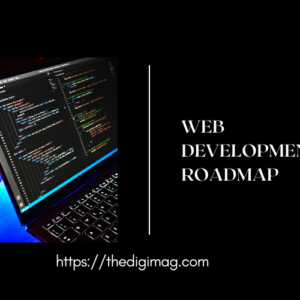Artificial Intelligence (AI) is no longer a futuristic concept—it’s here, and it’s transforming the world as we know it. From creating hyper-realistic images in seconds to mimicking human voices, AI is reshaping almost every facet of our life. It is modifying industries, education, politics, and even warfare.
But with great power comes great responsibility, and the rapid rise of AI has sparked both excitement and concern. Let’s dive into how AI is revolutionizing our world and what it means for the future.
Table of Contents
The Power of AI: From Fake Photos to Multilingual Voices
Imagine being able to create a realistic-looking fake photo in just a second. No need for hours of meticulous work in Photoshop. With Artificial Intelligence, you can alter the contours of your face, change your hairstyle, or even expand the borders of a photo with a single click. These AI-generated images are so convincing that it’s becoming harder to distinguish between what’s real and what’s not.
Artificial Intelligence is not limited to creating images only. It can understand spoken languages, like English or Arabic, and instantly translate into a language of your choice. It can even change your face and voice, allowing you to speak another language fluently. For instance, if you are an English speaker with no knowledge of a foreign language, AI can make you speak Arabic or Russian effortlessly
This technology is a game-changer for communication, and education. Amazon is exploring AI-generated books. The possibilities are endless, and the pace of innovation is staggering.
The AI Revolution: Jobs, Education, and Beyond
The impact of Artificial Intelligence is vast, reshaping industries and redefining the future of work. Throughout history, technological breakthroughs have always led to job disruptions. When streaming services replaced DVDs, video rental stores vanished. When digital cameras overtook film, darkroom technicians faded into history.
In the same way, Artificial Intelligence is set to transform countless professions, but this time the scale is unprecedented. Graphic designers, and logo creators are now at risk of being replaced by AI tools like Midjourney and Logomaster.ai, which can generate stunning results in minutes.
However, it’s not all doom and gloom. While Artificial Intelligence may eliminate some jobs, it will also create new ones. According to the World Economic Forum’s Future of Jobs Report 2020, 85 million jobs will be lost to AI by 2025, but 97 million new jobs will be created in the same period. The key takeaway? Artificial Intelligence is not a job killer—it’s a job category killer. The jobs of the future will require AI skills, and those who adapt will thrive.
The Education System: A New Era of Learning
AI tools like ChatGPT are becoming indispensable for students and educators alike. AI has also revolutionized the education. Today, we carry smartphones that are more powerful than computers. Do you recall when teachers warned against using calculators, lest it should impair our cognitive abilities?
Forward-thinking countries like Japan are already leveraging Artificial Intelligence in education to ease teachers’ workloads, simplify complex topics, and teach languages. At the same time, Japan has established strict guidelines to prevent misuse, reinforcing that AI is a tool to enhance learning, not a shortcut.
The Dark Side of AI: Political Propaganda and Scams
While Artificial Intelligence has the potential to do immense good, it also poses significant risks, especially in the realm of politics. The 2016 US presidential election and the Brexit vote were early examples of how AI and machine learning could be used to manipulate public opinion. By analyzing data from platforms like Facebook, political campaigns were able to send personalized messages to voters, tailoring their propaganda to individual fears and preferences.
AI is also being used for scams. Voice cloning tools, which can replicate someone’s voice with just three seconds of audio, are being used to trick people into sending money. It is a global problem, with fraudsters using AI to impersonate family members and steal millions.
The Future of AI: Robots, Ethics, and Beyond
As Artificial Intelligence continues to evolve, its applications are becoming more sophisticated. Companies like Boston Dynamics are developing humanoid robots that can perform tasks like running, jumping, and even assisting in construction. When integrated with AI technologies like ChatGPT, these robots could outperform humans in efficiency, as they don’t need to sleep or eat.
But with these advancements come ethical questions. What happens when robots become smarter than humans? These fears raise profound philosophical and ethical questions about the role of AI in society.
Adapting to the AI Revolution
The rapid rise of Artificial Intelligence is both exciting and daunting. While it offers incredible opportunities, it also poses significant challenges. The key to thriving in this new era is adaptability. Whether you’re a student, a working professional, or a business owner, understanding and leveraging AI will be essential.
As AI becomes the new standard, those who fail to adapt risk being left behind. Just as basic computer literacy is a requirement for most jobs today, AI literacy will soon become a necessity. The time to start learning is now.
Conclusion: Embracing the AI Era
Artificial Intelligence is not just a technological advancement—it’s a global revolution that will impact every aspect of our lives. From transforming industries to reshaping education and politics, AI is here to stay. While it presents challenges, it also offers immense opportunities for those who are willing to adapt.
The future of AI is both thrilling and uncertain. As we navigate this new landscape, it’s crucial to stay informed, embrace change, and use AI responsibly. After all, the tools we create are only as good as the hands that wield them. The question is: will we use AI to build a better future, or will we let it divide us? The choice is ours.





